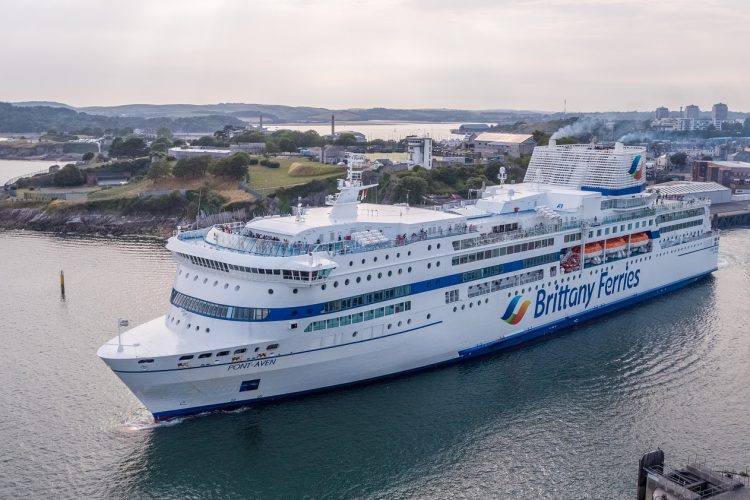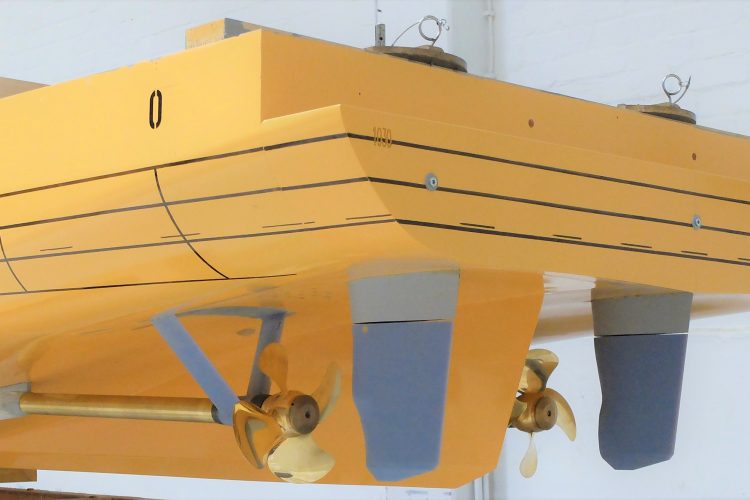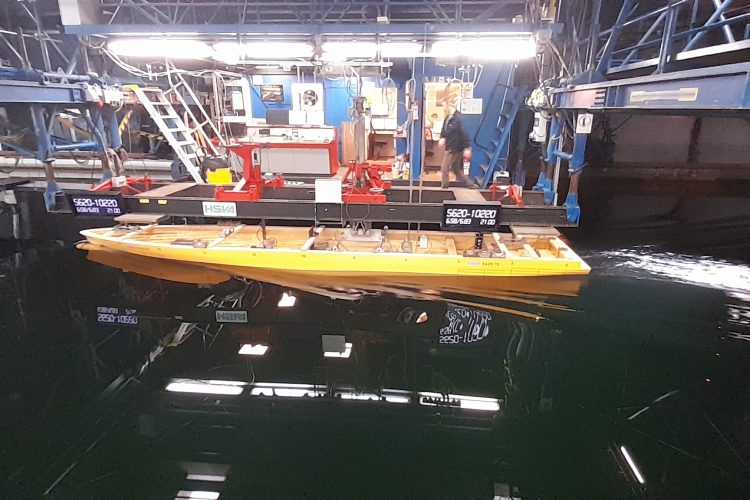‘Duck Tail’ installation could boost flagship-ferry’s fuel efficiency by 10%
Brittany Ferries’ flagship vessel Pont-Aven has just had an important environmental upgrade. A ‘duck tail’ has been added to her stern, as part of her annual technical stop. The work has increased the ship’s length by around 3 metres, improving hydrodynamic performance. It is expected to boost fuel economy by around ten per cent when Pont-Aven returns to service.
Hydrodynamics is an important part of the sustainability jigsaw for any shipping company. Reducing resistance while moving through water cuts fuel consumption and therefore emissions. It’s why sleek design is such an important feature for Brittany Ferries’ newest vessels like Santoña and Salamanca. But it’s also why a Duck Tail was chosen as a retro-fit option for Pont-Aven which began operations in 2004.
The project started with Computational Fluid Dynamic simulations developed by the design office of Chantiers d’Atlantique in France. Engineers first considered the ship’s bulbous bow. A dozen proposed design tweaks were put through the programme, however all revealed little benefit in terms of fuel savings. That meant turning to the stern.
“When we looked at improvements in stern design, results of the CFD simulations were far more promising,” explained Brittany Ferries’ research and projects manager Brice Robinson. “In fact the data pointed to a significant reduction of around ten percent with the addition of a Duck Tail, which was very exciting.”
The next step was to put theory to the test. Brice and his team flew to Germany to a 300m long test pool at the Hamburg Ship Model Basin (HSVA) in Hamburg. This was where Pont-Aven’s hull had originally been tested in 2002 by Meyer Werft. Original design drawings for Brittany Ferries vessel, allowed a 7-metre scale model of Pont-Aven’s hull to be re-crafted, complete with stern modifications.
In total, three different duck tail shapes were tested, all of which backed up data from the Computational Fluid Dynamic simulations. “The improvement was obvious the moment the first model took to the water,” added Brice Robinson. “Extending the hull immediately changed the way it sat, flattening the turbulent wake behind the transom* thereby reducing drag around the stern. This should be even more significant when applied to our flagship, as it will help compensate for the additional weight of her scrubber system, fitted in 2015.”
Scrubbers work like a catalytic convertor on a car, stripping air quality pollutants like sulphur and particulates from smoke emissions. Pont-Aven was one of five ships in the Brittany Ferries’ fleet to benefit from a clean-ship investment of around €90 million in scrubber installation, supported by ADEME.
Having identified the most effective duck tail design, work was scheduled to coincide with Pont-Aven’s planned technical break this November. Brittany Ferries has also turned to drive-train partner Wartsila. To boost efficiency further, the partners are investigation improved propeller design. This could lead to a further improvement of around 5% of propulsion efficiency when retro-fitted to Pont-Aven at a later date.
*transon = cross-section of the stern
 News
News



